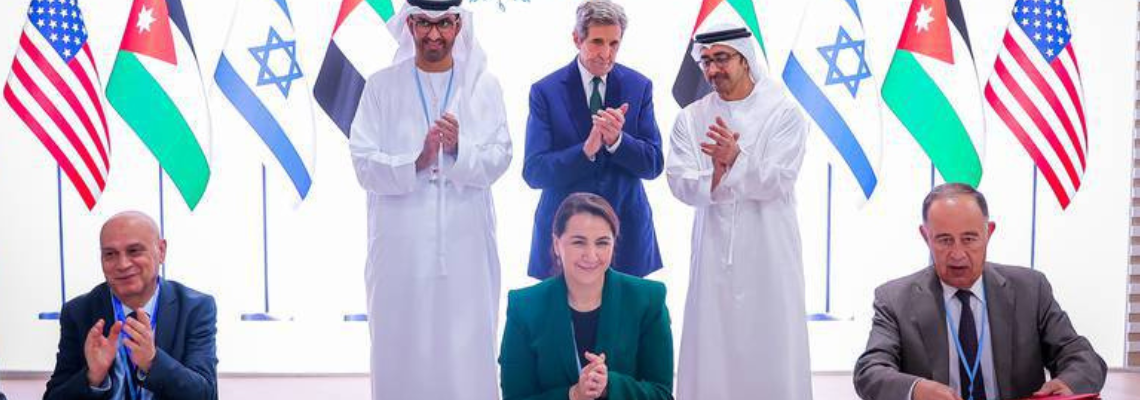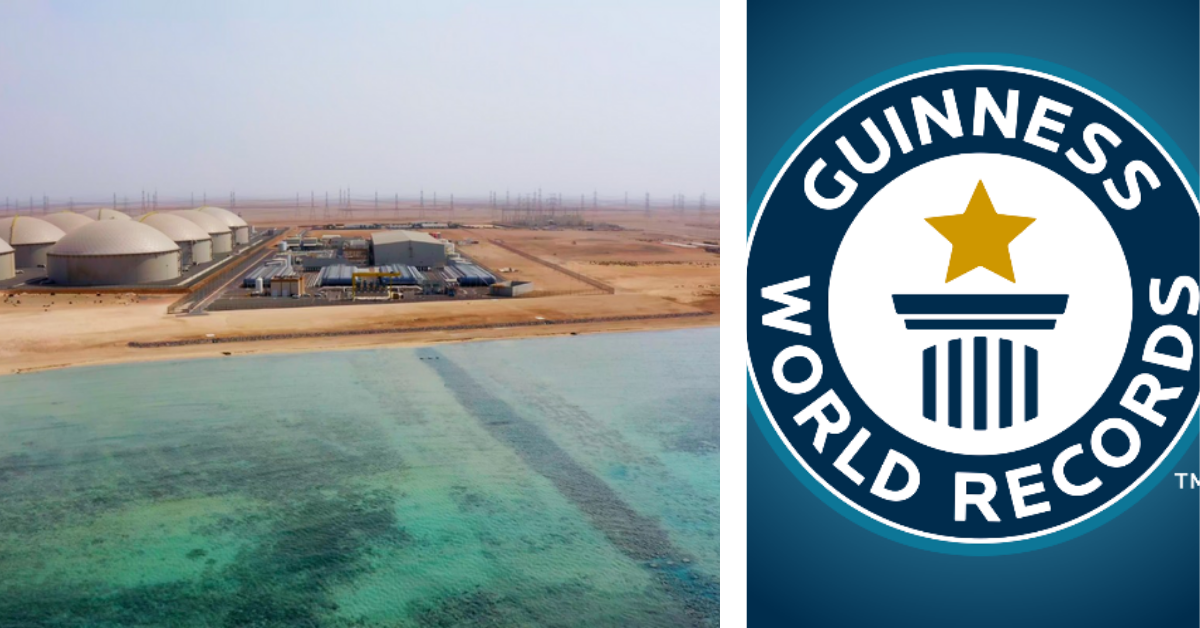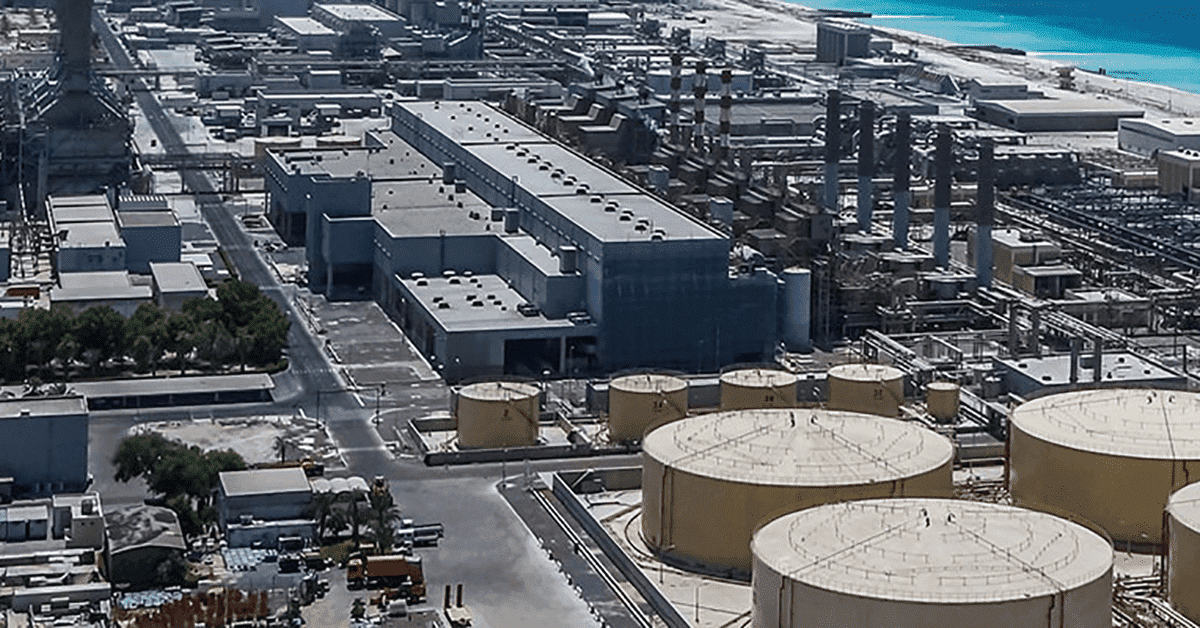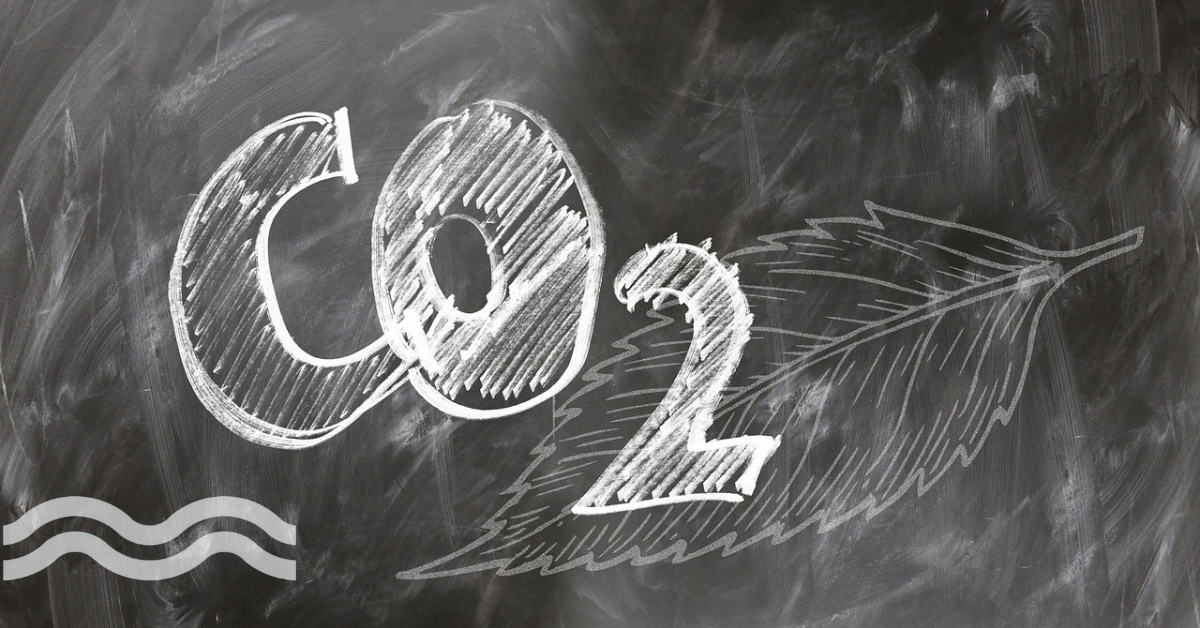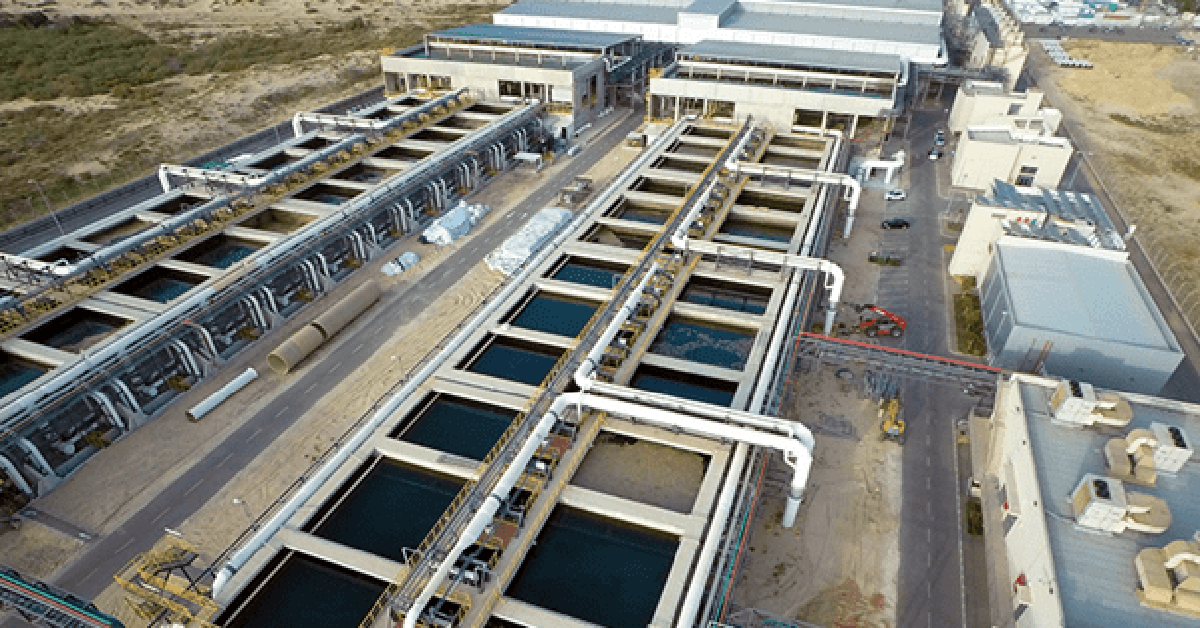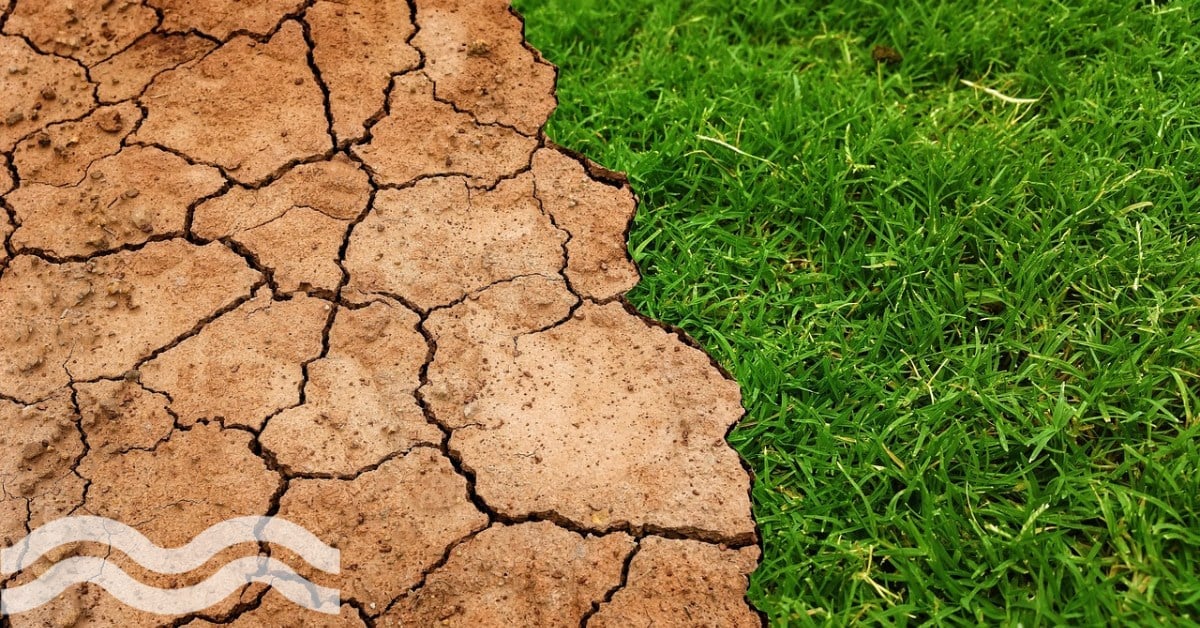Project Prosperity: New solar desalination deal in MENA
A new MoU between the UAE, Jordan and Israel was signed to advance the use of clean energy and sustainable water desalination projects.
Project Prosperity
A new memorandum of understanding (MoU) between the UAE, Jordan and Israel was signed at the recent COP27 event to advance the use of clean energy and sustainable water desalination projects.
The MoU refers to Project Prosperity, which is split into two sections: Project Green and Project Blue.
Project Green includes a plan to construct a 600-megawatt solar plant with battery storage in Jordan, to produce clean energy to export to Israel.
Project Blue will see a sustainable water desalination plant built in Israel, to export 200 million cubic metres of potable water a year to Jordan.
Project Green is a plan to construct a 600-megawatt solar plant with battery storage in Jordan, to produce clean energy to export to Israel.
Project Prosperity was designed to address the challenges of climate change and its impact on water and energy security in the Middle East.
Another element of the project includes to promote renewable energy, sustainable water supply, and stability in the region.
The agreement was signed by Mariam Al Mheiri, Minister of Climate Change and the Environment; Mohammad Al Najjar, Jordan’s Minister of Water and Irrigation, and Esawi Frej, Israel’s Minister of Regional Cooperation.
Desalination – can it go green?
Project Prosperity joins a roster of new desalination projects being developed in the Middle East with the aim to be more energy efficient and sustainable.
Earlier this year, Dutch start-up Desolenator BV signed an agreement with the Dubai Electricity and Water Authority (DEWA) to design and build a carbon-neutral water purification and desalination system powered by solar energy.
The new system, powered by Desolenator BV's technology, will produce potable water at less than $0.02 per litre, the Dubai utility claimed.
Meanwhile West of the UAE, a new desalination plant powered 100 per cent by renewable green hydrogen is set to be built in the new Saudi Arabian city of Neom.
The plant will have a production capacity of 500,000 m3/day to meet 30 per cent of the city's forecasted total water demand for residential, industrial, and commercial use using reverse osmosis.
A dependence on desalination
In region lacking natural water resources and historically dependent on desalination, several MENA countries are looking to boost capacity to ensure future resilience.
Morocco recently declared a “state of water emergency” and said it is looking to expand its desalination capacity to provide additional water resources.
The ministry called for a stop to “wasting water” to help preserve water resources and to ensure “equitable distribution of water for the benefit of all”.
Morocco faces growing demand for drinking water and the scarcity of conventional water resources in some regions, while the country witnesses a deficit in natural runoff resulting from climate change.
The plan is to take its 300,000 m3/day installed desalination capacity, and triple this to one million m3/day. Over the next five years, three billion euros are expected to be invested.
Speaking to Aquatech Online at the time, Khalid Tahri, technical and engineering senior manager from the National Office of Electricity and Drinking Water (ONEE), said: “Morocco faces growing demand for drinking water and the scarcity of conventional water resources in some regions, while the country witnesses a deficit in natural runoff resulting from climate change.”
Share your water technology stories with us
Do you have an innovation, research results or an other interesting topic you would like to share with the international water technology industry? The Aquatech website and social media channels are a great platform to showcase your stories!
Please contact our Sr Brand Marketing Manager Annelie Koomen.
Are you an Aquatech exhibitor?
Make sure you add your latest press releases to your Company Profile in the Exhibitor Portal for free exposure.
We promise never to send you spam and you can unsubscribe at any time!
